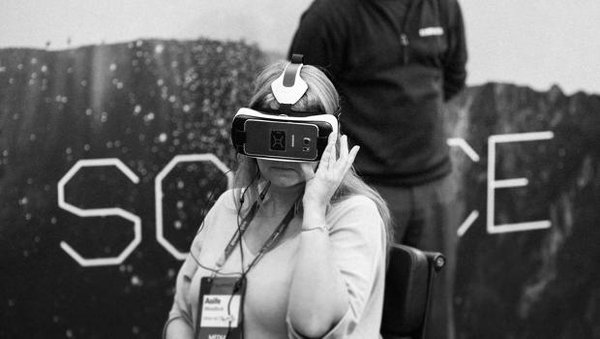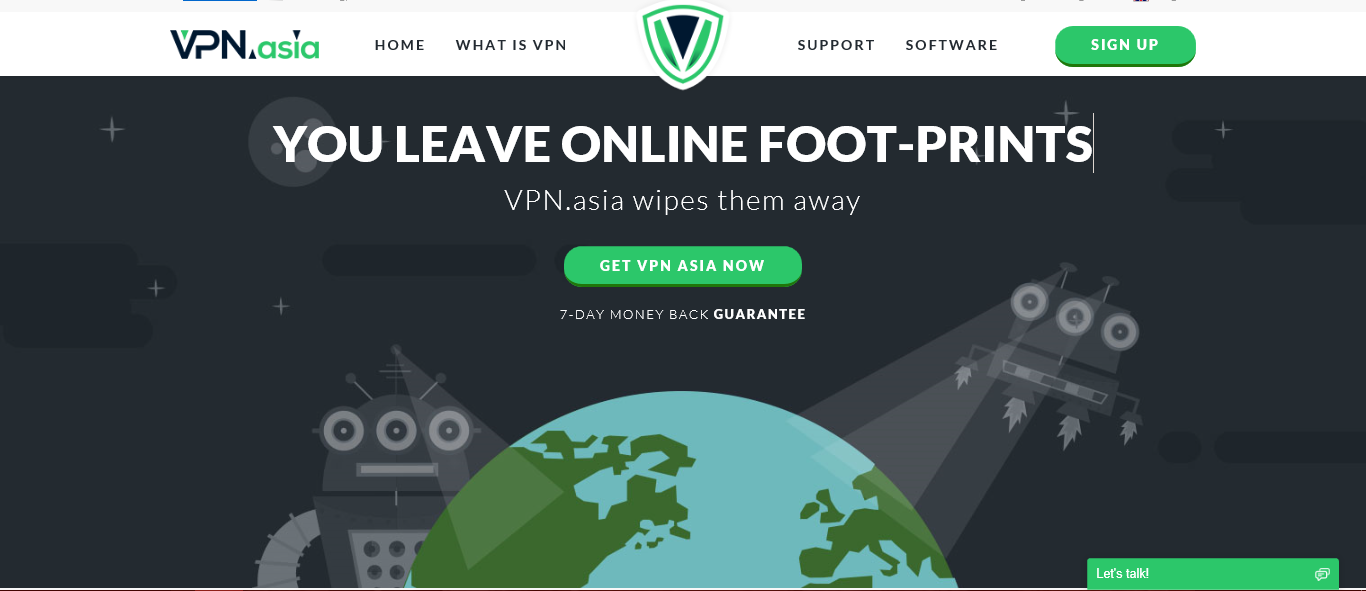Virtual Reality is here. Even since the beginning, we have been so excited about it. And now, that whole thing just came true. The gear is here and now.
If you’re a VR lover, this will be your best year. You’ll just gonna love it. We’re not talking about concepts anymore. We are talking about Virtual Reality gears you can purchase. Yep, that’s it. And, there won’t be just one of them. We are talking many of them. The market will be full of them. To begin, we have HTC Vive, Google Cardboard, and Sony. Others will soon join later this year. It won’t be too much to say this. This year will shape the future of device and console.
Will it be the only thing? I guess not. See, these Virtual Reality gears are the future. And what can you expect from the future? It is supposed to change how we live today. When it comes to VR, it changes how we use our devices. Smartphones, gaming consoles, even PC. No more sitting in front of your monitor. No more resting your arms for hours. That’s now how VR works. These gears combine all your senses to let you enjoy everything. No more monitor. No more stiffed arm. Why should you watch if you can be inside the game/movie? Why should you feel the pain in your eyes or arms while you can move so active? Why should you just sit if you can do anything your game character can do? You can sit, walk, run, jog, aim, shoot, duck. Anything.
Sounds good, right? Well, perhaps because it does. But, there’s something wrong. To use VR gears, you need all your senses. You need them together to get the whole VR experience. Why doesn’t it sound bad? Because you just the tiny detail of it.
That means it pulls data from it, access it, and use it before it can finally bring the Virtual Reality experience. It may not work like so, but it seems that these gears use the very personal data of a person and no one speaks about it. And why we care? Because if this went as bad as we expected, we may soon deal with a serious privacy issue.
Virtual Reality and Identity Theft
Internet is a huge digital library. Most likely, you can find everything there. Unfortunately, that includes your personal information. How can such that thing happened? Simple. Because we deliberately hand this information over to providers. Your social media, mobile apps, blogs, email. Everything. Every time you joined a service/app, you give pieces of your information to create an account. You won’t consider that harmful to your privacy because you’re so used to them. But, what if I tell you, this way can be used to collect your personal data. Of course, it won’t be much help if the company only knows your name, email address, and some other basic stuffs. Anyone can find those on the internet now. That’s when businesses move forward. They need to learn more about you so they can produce more. But, no one won’t be easy to hand over that information. So, in order to get that information, they need you to ‘unconsciously’ give the information over. How? Through different apps (and devices).
Let me show you an example. Do you know that both Facebook and WhatsApp? What if I tell you that both of them are belong to the same company? That’s right. Facebook. Without WhatsApp, Facebook itself has more than 1.5 billions of active users per October 2015. If we add WhatsApp, the company gets another 1 billion users (per February 2016). And this number doesn’t include Oculus Rift users. Yup, Facebook also owns this Virtual Reality brand. Once released, Facebook will get another fresh supply of user’s data. But, don’t mind about the numbers. Mind about how much potential information the company gets. Billions of it. Your address, email address, phone number, country, office address, your child’s name, your hobby, online transactions, app usage patterns, web usage patterns, your favorite books, and many more.
I won’t hesitate to tell this. Once your data is online, you can’t get them back. Once it’s online, it will be available to anyone, including cyber criminals. Don’t get surprised if somehow those criminals get your data even if you never handed it over to them.
See? That’s why we’re so worried. You should, too.
A State Surveillance?
No smartphone can’t be used as surveillance today. Get the right key and you get the access to anyone’s life. This is how things work today. Now, if you want to blame something, blame location-based services. Why? Because it makes you traceable. Despite the benefits of using them, location-based services expose us to cyber threats.

The bad news is things won’t get better any soon. More smartphone features are going to rely on this feature. Virtual Reality gear, for example, require this feature to track your movements and record them. That includes things you see, where you’re facing, and your interaction with things around you. These are the very basic features of any VR gear. At one side, they guarantee the best virtual experience to you. But at the other side, anyone can use them to spy on us.
And here is the even worse news. All Virtual Reality gears pose this risk. Not just the expensive headsets, but literally all of them. Why? Because all gears run on the same principle. They use your smartphone’s gyroscope and accelerometer to determine your movement and orientation respectively. That’s today. In the future, things may even more worrying. Experts predict that future VR games would include two important features. Game interaction and social experience implementation. A microphone will soon become standard feature of future VR gear. That may sound thrilling. You can talk with your friends while playing a game. However, it also sounds scary. What if someone hack into your gear? What if the scammer got your sound record?
Third-Party Influences
Not everyone who uses VR are good people with good intentions. We have more than enough proofs about this. Anyone can hack anything. There’s no exception. Not even VR.
A Virtual Reality gear focuses on the manipulation of virtual environments and interaction. These are the main selling points of every VR gear. However, they’re not always meant to be just like that. With an extra ‘boost,’ they can be anything. For example, Second Life. In one VR event hosted by the company, all guests were ‘greeted’ with flying phalluses. It may sound weird or whatsoever, but it’s not impossible.
Another example is OpenSimulator. It hosts Metaverse, a shared VR environment. This VR runs Avination through its grid mode. Inside, users can live in a virtual society, complete with its own economy. Feel not enough? You can get Hypergrid, an extension that allows you to connect to multiple virtual environments. Anytime, you can use hyperlinks to teleport from one world to another.
The real problem here is this. How can we be sure these links are safe? Are they even suitable for all users? Do they pose any security and/or privacy risk?
The same concern goes over Oculus Rift. Privacy policy issues are still a major problem. We know for sure that the company will fix the problem soon. However, they didn’t tell us that they will take responsibility over third-party app/service. They won’t care if any third-party app leaked your personal information. No one would be there to assist you to solve the problem. So, here is one advice to all of you. Check privacy policy of every app and site before you use them via your headset.
A Long Way to Our Dream Virtual Reality
Things can’t go simpler as they want. At least something must have been sacrificed to reach certain level of simplicity. Is Virtual Reality one of this? Should we fear for it? Is it really the next step of our technology? How should we deal with it? Can we really keep and protect our privacy?
We believe, there’s always solution for every problem. Virtual Reality may be a new technology to us. It does possesses security and privacy concerns. We are acknowledged about them. However, it doesn’t mean there’s nothing we can do about it. Let me tell you how we see things from our perspective.
There are only 2 ways cyber threats can happen. First, via physical contact with your device. This means someone need to physically alter your VR to get your data. This is something we can’t change. It’s up to you. The second way is, through the internet. The scammer can control your VR from remote location. No physical contact needed. It’s more dangerous than the first way, but this is something we can fix.
How? By securing your internet connection.
Up until now, no VR can works standalone. You need at least another device to pair. It can be your smartphone or PC. Leave your Virtual Reality gear. There’s nothing we can do about it. Our concern now is to secure your smartphone/PC connection. How? By using VPN Asia.
VPN Asia for the Best Virtual Reality Experience
VPN Asia is not just the best VPN in Asia. It is also a VPN you can trust with your security and privacy. We secure your connection using our advanced encryption. We scramble any data transmission into meaningless bunch of codes. Without the right decryption code, no one can find the true meaning behind these codes. Don’t worry, no one has the key. Not even us. This is our way to ensure your security and privacy on the web. With VPN Asia, you will always stay anonymous on the web.
Here is more. We got airtight security just for you. With us at your side, no cyber criminals can touch you. 100% hacker-proof.
 English
English
 German
German Dutch
Dutch Thai
Thai Chinese
Chinese

